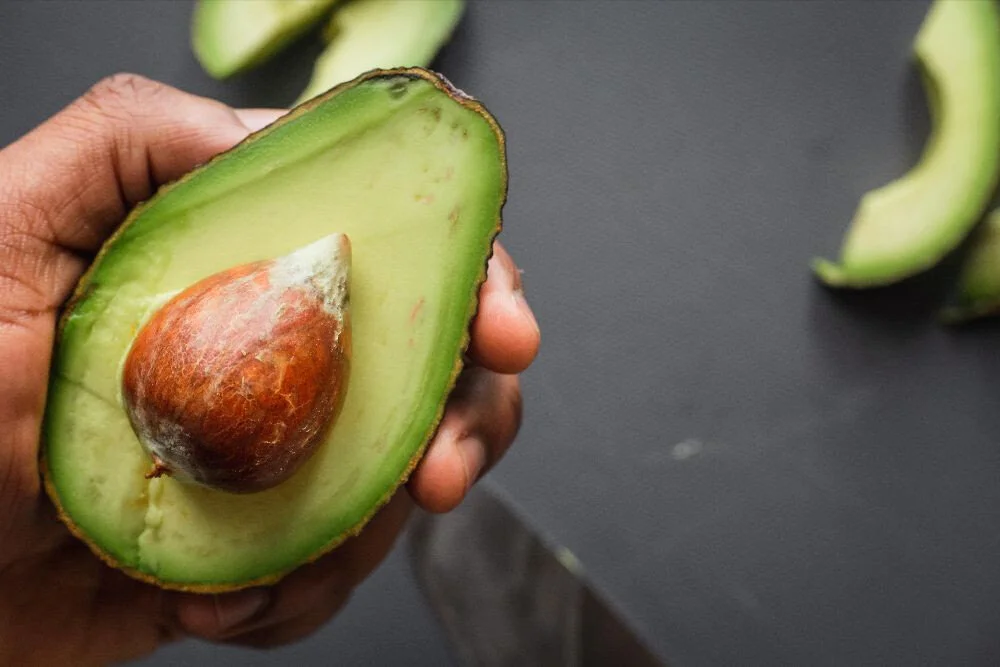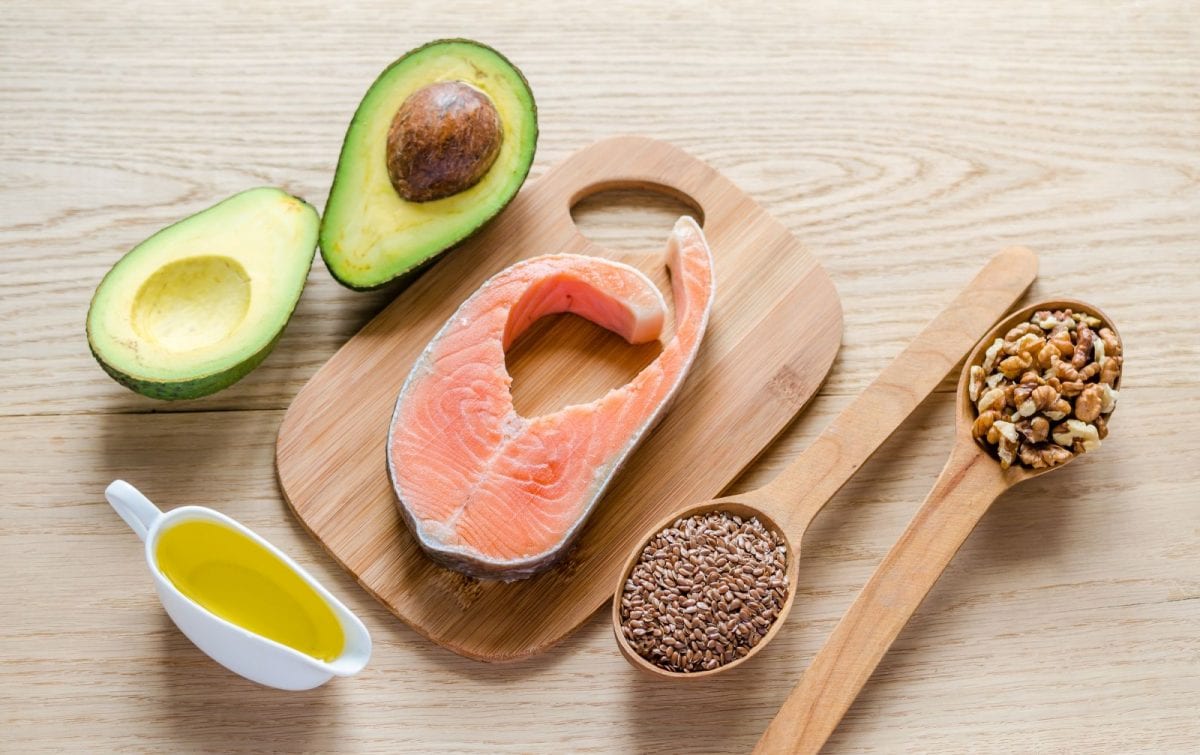These days with all of the fad diets and constant overload of information on the internet, knowing what to eat can be confusing! This week, we’re going to discuss one of the most hotly debated topics: fats.

One of the myths surrounding fats is that a low-fat diet is a healthy diet. This isn’t true. While you should be consuming everything in moderation, fats aren’t inherently bad. It all has to do with what type of fat you’re eating. So let’s clear up the confusion once and for all.
Most of the fat we consume is in the form of triglycerides. Triglycerides are made up of glycerol attached to three fatty acid molecules, which are long chains of hydrocarbons. There are two main types of fatty acids: saturated and unsaturated fatty acids. This just refers to the number of hydrogens that are attached to carbon. Saturated fatty acids have a hydrogen attached to each carbon, whereas unsaturated fatty acids do not. Unsaturated fatty acids are then broken down further into monounsaturated fatty acids (one carbon is unsaturated) and polyunsaturated fatty acids (more than one carbon is unsaturated). Depending on where the unsaturation is along the chain of hydrocarbons will determine its structure, function, and role that it plays in your body.
In general you should be choosing foods that are higher in unsaturated fatty acids (both monounsaturated and polyunsaturated). Higher concentrations of unsaturated fats are found in plant products, however they are also found in meat and animal products. Main sources of unsaturated fats are nuts and seeds, olives, vegetable oils, nut butters, fatty fish, and avocados. People often talk about Omega-3s and Omega-6s, which are types of polyunsaturated fatty acids. Omega-6 fatty acids are found more in plant oils and most nuts and seeds, whereas Omega-3s are found more in fatty fish and less so in nuts and seeds. Both are important for health, however a North American diet is generally too high in Omega-6s and too low in Omega-3s, which can cause inflammation. To make sure you’re getting a good balance of Omega-3s to Omega-6s, make sure you’re eating fatty fish, such as salmon, mackerel, sardines, and anchovies, and seeds such as flax or chia.
Saturated fats are mostly found in meat and animal products. While not the devil food we thought it once was, a diet that is too high in them can increase cholesterol and the risk of cardiovascular disease, as in a typical North American diet. However, having some saturated fat in your diet is healthy as long as you’re consuming more unsaturated fats and generally eating a balanced diet of whole, unprocessed foods. When eating meat or animal products, choose a grass-fed option when available.
All of these types of fat are important for a healthy diet. In addition to providing energy, fat helps form cell membranes, balances hormones, and helps to transport fat-soluble vitamins. Assuming you’re eating a good balance of Omega-3s to Omega-6s and limiting your saturated fats, a healthy fat diet can actually decrease your cholesterol, which is associated with cardiovascular disease and other chronic illnesses.
Fat is also incredibly important for your brain! Fat makes up 60% of your brain and so eating healthy fats is so important for making sure that it’s functioning properly. Myelin is a fatty substance that wraps around and protects all of the nerves like the bark on a tree. A diet full of healthy fats makes your connections more efficient, improving your concentration and memory. Fats are also incredible for decreasing stress and boosting mood.
The only type of fat that you want to avoid completely is trans fats. Trans fats are unsaturated fats that have been modified to increase their shelf life. They are found a lot in processed foods such as baked goods, crackers, fried foods, margarine, and vegetable shortenings. Trans fats are inflammatory and have been associated with many chronic diseases including heart disease. As much as you can avoid trans fats!
It is time to end the low-fat = healthy eating myth. But be aware of the type of fats you’re consuming. The best way to make sure that you’re getting the proper balance of unsaturated and saturated fats, and avoiding trans fats? Eat a balanced diet of whole, unprocessed foods.
What are we finding in the research?
Omega-3 fatty acids are vital for brain development and are thought to be neuroprotective, as they support the myelin sheath that wraps around and protects nerves.
A recent study looked at the association between omega-3 fatty acid intake and depression in middle-aged women. The researchers found that there was a negative association between omega-3 fatty acid intake and depressive symptoms. Using functional magnetic resonance imaging, they also found a negative association between omega-3 fatty acid intake and connectivity in regions of the brain associated with depression. The researchers suggest that omega-3 fatty acid intake can potentially alter the structure and function of the brain, and that this could help reduce the risk of depression.
AUTHOR BIO
Greg Wells is the CEO and founder of Wells Performance, a global consulting firm on a mission to elevate how we live our lives at work and in life. He has worked with some of the highest-performing individuals on the planet, including Olympic and world champions and elite organizations including General Electric, BMO, Deloitte, KPMG, BMW, Audi, Sysco Foods, YPO and Air Canada. He is also committed to inspiring children and young adults, working with school boards and independent schools around the world.








